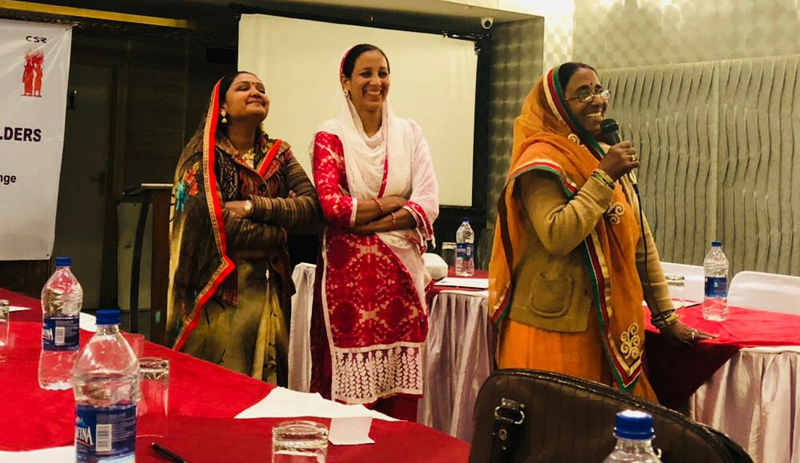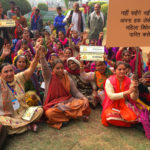Centre for Social Research (CSR), with the support of Hanns Seidel Stiftung (HSS), initiated the project, Water Conservation and Climate Change Training of Trainers Program for EWRs of Rural Rajasthan in the year 2012. This recognised the increasing impact of climate change on rural communities and the marginalisation of women from environmental management.


With trainings having been conducted with EWRs in the last three phases, on the 1st of December, 2017, a One Day Consultation was held in Jaipur to provide a platform to the major stakeholders including the EWRs for a dialogue which primarily focused on existing water conservation issues and recommendations for improvement. The insights provided during this consultation would go on to help make the program more effective.
Those attending the Consultation were EWRs from Jaipur, Abu and Bhinmal, Rajasthan who had either attended the technical training under this project or were to do so in the coming year. Amongst the team of experts we had Ms. Richa Audichya (Local Expert from Rajasthan), Mr. Jagveer Singh (Technical Expert, GVNML), Mr. C. M. Tejawat (Additional Director, Watershed Development and Soil Conservation Department) and Mr. Narayan Singh (Asst. Engineer, Chaksu).


The consultation began with a round of introduction of the participants and an a sharing by the participants themselves regarding the importance of the program, aspects of how climate change specifically affects women, and the need to work with women for water conservation.
Mr. Sandeep Dubey, Program Manager, HSS, in his key note address, introduced HSS and why it felt the need to work on connecting women with livelihood and climate change and its partnership with CSR. Following this, Ms. Ritika Bhatia, Project Coordinator, CSR, presented her experiences of the trainings done thus far under the project and spoke of other countries as well that were dealing with a similar or worse state of affairs. And Ms. Richa Audichya, the local expert from Rajasthan who has been working on issues of women for years addressed the need for integrated planning without which no effective and long term impacts can be seen.
Following this, the experts drew insights on the technical aspects of the schemes and gave their recommendations. Some of the recommendations were:
- Differences in agro-ecological conditions make it difficult to replicate similar plans in Sirohi, Abu and Phagi, Jaipur. Plans should be designed keeping in mind the uniqueness of specific regions.
- Community level accountability and equitable benefit sharing is must to make any scheme work effectively. Community engagement at every step is most imperative from planning to implementation.
- Changes in crop cycles are occurring because of seasonal changes due to climate change. This leaves farmers unprepared and unable to harness maximum benefit from the crops harvested.
- Village communities can take small initiatives by themselves such as the repair and maintenance of existing wells to increase water storage and not depend helplessly on the Government.
The EWRs spoke freely during the consultation and addressed their questions to the experts specifically with regard to schemes, the benefits that they offered and by when they could avail them. At CSR we hope to have this initiative on going by supporting women for this noble cause.




